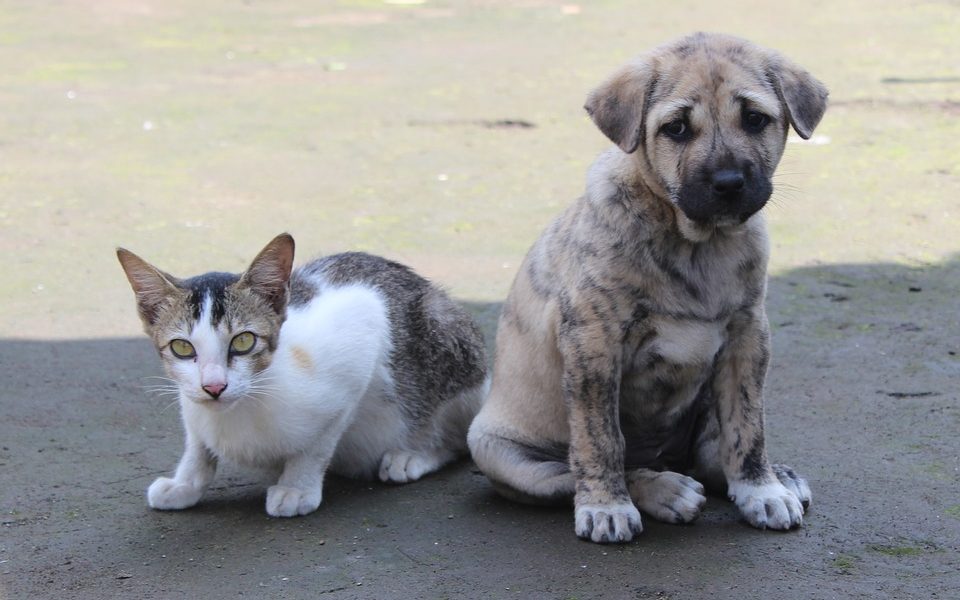Farthing brought two dogs rescued by American troops in Afghanistan to their new homes in the United States. From Houston, he was to travel to Memphis, Tennessee, to drop off a dog, while the second was heading to Colorado Springs, Colorado.
This may be his last trip.
“There is nothing we can do,” Farthing told CNN. Farthing, a former British Royal Marine, founded Nowzad, an animal rescue charity in 2006.
“To date, we have helped 1,600 soldiers locate their dog or cat,” he said.
On Monday, the CDC announced it was suspending the importation of dogs from more than 100 countries, including Afghanistan, where rabies is a problem. The agency said it had received forged rabies certificates, seen the importation of three dogs infected with rabies since 2015 and had been stretched beyond the limit by the response to the coronavirus pandemic.
“This temporary action is necessary to ensure the health and safety of dogs imported into the United States and to protect public health against the reintroduction of the canine rabies virus variant (canine rabies) into the United States,” said the CDC.
“We are upset because this is only a blanket ban and does not support rescues that actually do the job 100%,” Farthing said.
Farthing said his group was not part of the problem. “In the last 15 years that we have worked as a charity, we have never exported a case of rabies,” he said.
He said his group is doing everything to ensure that the pets that are rescued are free from rabies and other infectious diseases. They are vaccinated, microchipped, and their blood tested to make sure they are free from the virus – which has no cure and is virtually 100% fatal once an animal or human begins to show signs of illness. symptoms of infection.
Just getting the rabies vaccine into Afghanistan has been a struggle, he said. “It’s an absolute nightmare. It’s more than frustrating,” Farthing said.
“You can’t just order them in Afghanistan.” The group imported vaccines from Britain and Dubai and transported them by hand to Afghanistan to ensure they are stored safely at all times.
The group follows UK government standards to ensure animals are free from rabies. This requires a vaccination, a blood test, a microchip to make sure the animal is not swapped or mixed with another, and a three-month waiting period before travel. The UK has been rabies free for over 100 years and is strict about the risk of importing infected animals.
The United States still has several strains of rabies that infect animals, including dogs, cats, raccoons, foxes and bats, but were declared free from the dog strain of rabies in 2007. The CDC said the suspension of imports was ordered in part to conserve this strain. because rabies can spread rapidly among animals and its elimination is expensive.
Farthing has said he would like his group’s protocols to be used as a model for the CDC as he works to restore the importation of dogs from countries affected by rabies.
In the meantime, he said he would look for space for the five dogs Nowzad currently has in the clearance process.
“It’s a six week process,” Farthing said. “We can’t rush. Now they’ll probably be with us for a year.”
Soldiers based in Afghanistan are often ordered to leave without warning and scramble to make arrangements for the animals they have adopted. The CDC said it could make exceptions on a case-by-case basis for Defense Department staff who move home and wish to bring their pets with them. But the group is also organizing rescue adoptions by people who have never been to Afghanistan, and these will have no workarounds.
“We can say ‘we can keep the dog for you’, but we only have limited space,” said Farthing.
“Some dogs will be sentenced to death because we obviously don’t have room.”
At least four dogs enter the United States under the wire. Farthing says he has two with him and his wife will bring two more later this week.
“We are facing a small problem because of the thermal embargo,” he said. If the temperature rises above 85 degrees, he said, airlines will not fly animals because of the danger to them. They must therefore be driven from Houston to their final domicile.
“First we have the Taliban in Afghanistan, then the coronavirus, then the heat issues, and now the CDC,” Farthing said.
The total cost to bring a dog from Afghanistan to the United States is around $ 5,000, Farthing said.
“The majority of this is air travel costs,” he said. “What price are you paying to reunite this dog with the soldier who saved him?”
 Christ Yoder
Christ Yoder



/cloudfront-us-east-1.images.arcpublishing.com/gray/P5XQ6ZYQXVAM5MQ7O2X7G7SRHI.jpg)